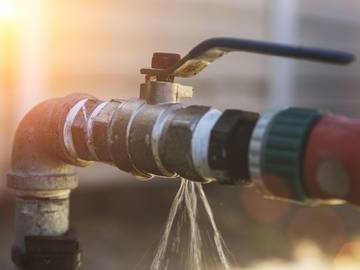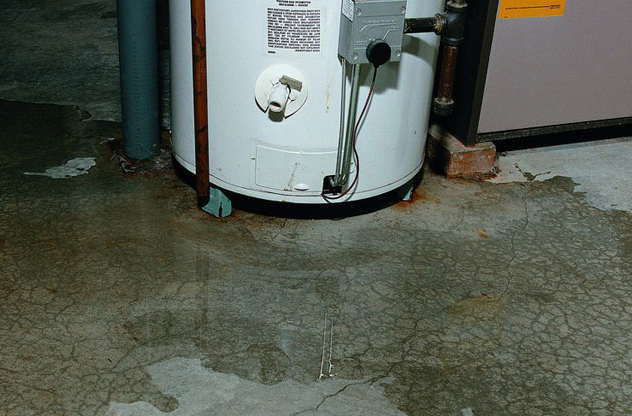The author is making several good points on How to Find and Prevent Water Leaks in Your Home in general in this content down below.

"Be cautious of little expenses. A little leakage will sink a terrific ship." - Benjamin Franklin.
He couldn't have actually been a lot more appropriate due to the fact that water leakages in our homes result in a waste of sources, increasing our water bills. This boost may seem negligible at initially, it can lead to considerable costs that can damage your bank. Other than a boost in bills, water leaks likewise create undesirable natural growth, architectural damage, as well as even electric threats.
If you have a water leak isn't always simple due to being unable to see most of the pipework in your home, figuring out. If you have had a rise in your water costs lately, observed water discolorations on wall surfaces and also ceilings, smelt poor smell, etc. You may want to think about asking for plumbing services to get it checked out.
There are numerous reasons for water leaks, and we have actually compiled the typical factors listed below. Examine to see if you have had relevant issues in your home lately.
Obstructed drains pipes
Food fragments, dirt, and grease can cause clogged drains as well as block the passage of water in and out of your sink. Boosted pressure within the gutters can cause an overflow and finish up fracturing or rupturing pipes if undealt with. To prevent clogged up drains pipes in your home, we encourage you to stay clear of pouring particles down the drain and regular cleaning of sinks.
High water stress
You observed your house water stress is greater than typical but after that, why should you care? It runs out your control.
It would be best if you cared because your ordinary water pressure must be 60 Psi (per square inch) and also although your home's plumbing system is designed to withstand 80 Psi. A rise in water pressure can put a strain on your house pipes as well as cause fractures, or worse, burst pipes. If you ever before observe that your house water stress is higher than common, connect with a specialist regarding regulating it.
Rust
As your pipework ages, it gets weaker and also much more prone to rust after the frequent flow of water through them, which can gnaw at pipelines and also cause cracks. A noticeable indication of corrosion in your house plumbing system is discoloration and although this might be difficult to identify as a result of most pipelines hidden away. Once they are old to make certain a sound plumbing system, we suggest doing a frequent examination every couple of years and change pipes
Deteriorated pipeline joints
Pipeline joints are the parts of our plumbing system where the pipelines attach. They are the weakest factor of our plumbing system. Consequently, they are much more at risk to deterioration. It is essential to note that although pipelines are designed to endure stress and also last for a while, they weren't developed to last forever; consequently, they would degrade gradually. This wear and tear can bring about cracks in plumbing systems. A typical indication of harmed pipeline joints is too much sound from taps.
Broken seals
One more source of water leaks in homes is broken seals of house devices that use water, e.g., a dishwasher. When such home appliances are set up, seals are mounted around water ports for very easy passage of water via the device. Therefore, a broken seal can cause leak of water when in use.
With little or no knowledge of plumbing, understanding your home's plumbing system sufficient to fix several of these issues (without repercussion) can be a headache. Contact plumbing experts in Pittsburgh, Providence, Rochester, and also environ today, and also they'll make those issues disappear.
He could not have been a lot more appropriate due to the fact that water leaks in our homes result in a waste of resources, raising our water costs. If you have had an increase in your water costs lately, noticed water stains on ceilings as well as walls, smelt lousy smell, etc. A boost in water stress can put a stress on your home pipelines as well as lead to splits, or even worse, ruptured pipelines. Another cause of water leakages in homes is broken seals of house appliances that utilize water, e.g., a dish washer. When such devices are mounted, seals are installed around water ports for very easy passage of water via the machine.
5 TIPS IN DETECTING A WATER LEAK IN YOUR HOUSE
Water leaks can be hard to find in your home, yet they can be so common. We rely on water every day in our home, which is why a leak can cause big problems. By detecting them early, you can save money and further damage, getting the problem fixed as soon as possible. Here are 5 tips to help you detect a water leak in your home, so you can contact a plumber straight away and get the issue sorted.
Check your water meter
Many people underestimate the value of the water meter in their home. It can be one of the best ways to tell if you have a leak early on, so you can get on top of it before issues start arising. Start by turning off all the water in your home: taps, washing machine, dishwasher, etc. Now take a look at the meter – if it’s still changing with everything turned off, it’s likely you have a fast-flowing leak that you need to get on top of straight away. If nothing changes, then leave your meter for an hour or two and come back to it. Did it change in this time? It’s likely you have a slower leak, which isn’t as urgent but still handy to get fixed so it doesn’t become a bigger problem.
Keep an eye on your bill
Another good way to detect a leak in your home is by keeping an eye on your water bill. It helps if you have a past bill from the same period of time. You can compare like for like and determine whether your water usage has increased significantly. If it has, there may be a leak in your system that you haven’t picked up before. A professional plumber can check through all of your pipes and determine where it is coming from.
Look for damage
If you have a leak inside your home, you will notice damage over time. Take a look at your showers and bathtubs and note whether any of the tiles surrounding the area seem to be discoloured or damaged in any way. There may be water stains, mould or peeling material that has resulted from a build up of moisture over time. Make sure you take a look under sinks at the back of cupboards that don’t get accessed regularly. This is where damage can go unnoticed and build up over periods of time.

I was shown that editorial on Common Causes of Water Leaks in the Home from an acquaintance on our other website. Sharing is nice. Helping others is fun. Thank-you for taking the time to read it.
For best results, ring!